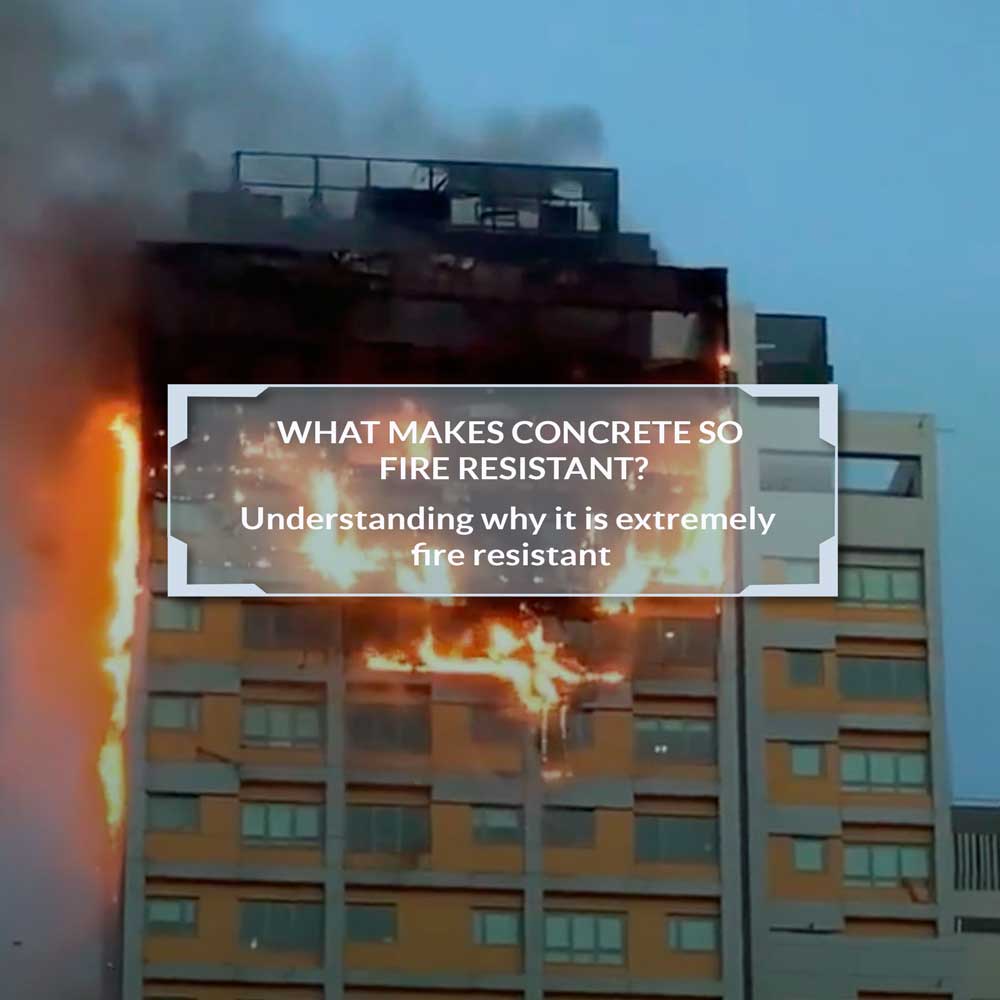Concrete is one the more desired construction materials for homes not only because it is durable and strong, but also because it is extremely fire resistant. Concrete does not burn. It can usually tolerate up to 4 hours of intense heat before it begins to break down. Concrete breaks down only after being subjected to thousands of degrees Fahrenheit. That temperature is significantly higher than any regular house fire.
Table of Contents
What is Fire Resistance and How is it Determined?
When a material is fire resistant, it means that it can stand strong in a fire while all else around it burns.
Fire resistance is determined by the rate of heat transfer the material has. Combustibility of a material under different conditions is also taken into consideration. The conditions of a fire may vary and materials that are fire resistant will withstand the heat under all or most conditions. Some of the conditions considered are the temperature of the fire, the amount of ventilation during the fire, and the fuel source of the fire.
What Makes Concrete So Fire Resistant?
The components that concrete is made of are the reason why concrete is so fire resistant. Components such as cement, gravel, crushed stone, and sand are all chemically inert. When something is chemically inert it means that it is not chemically reactive, therefore, it is non-combustible.
Concrete has a slow rate of heat transfer that also makes it so fire resistant. That means that the walls act as a defense that protects attached rooms from fire. This slow heat transfer also keeps the structural integrity of the building intact.
Another plus of concrete is that because of its properties, it does not release toxic odors, generate smoke, or drop melted particles when fire comes near it.
Are All Concretes Equally Fire Resistant?
Aggregate materials that are used while creating concrete will decide exactly how fire resistant your concrete will be. The best aggregates to use are known as carbonate and lightweight aggregates. Carbonate aggregates include materials like calcium or magnesium. Lightweight aggregates include materials like clay, slate, or shale.
Moisture is another factor that will determine how fire resistant your concrete is. Concrete that is not fully cured, or dry will break down faster. Concrete that has a low water to cement ratio will also succumb to fire at a quicker speed.
Permeability is another factor that can alter fire resistance. The more permeable the concrete, the faster it will break down.
Density and thickness will also determine how fire resistant your concrete is. A thicker concrete with greater density will result in higher fire resistance.
How To Improve the Fire Resistance of Concrete?
Concrete is extremely fire resistant, but it is not completely fire-proof. Luckily, there are things that you can do to improve the resistance of your concrete.
Using a heat shield intumescent paint is one way to help improve the fire resistance of your concrete. The material is meant to act as an insulator that keeps high temperatures away from the structure and protected openings.
Applying lightweight mortars to your concrete will also help. This material behaves like a thermal barrier that transfers heat away from important structures.
Using a protective board system will also help protect your home in a fire. The system is designed to hold the weight of structures for long enough so that individuals could get out on time.


